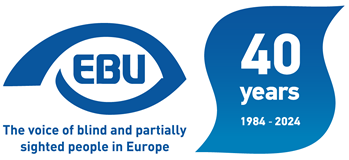In May 2018 the European Commission published its proposal for a regulation establishing the successor for 2021-2027 of the current popular Creative Europe programme. In March 2019 the European Parliament adopted its first-reading position. What are the main issues for the European Parliament?
The text voted in plenary in April 2019 represents the mandate of the European Parliament in the negotiations with the Council, which began in the autumn of last year and stalled after strong opposition from Member States on key issues for the future of the programme. During the negotiation phase, the Parliament has always had a clear objective: to have a programme capable of supporting cultural, artistic, creative, audiovisual projects, with European added value, which can circulate in several countries of the European Union and also outside, thus strengthening the EU's economic dimension and competitiveness in this field. The Creative Europe programme must be aimed at promoting the active participation of citizens with particular attention to the new generations and to accessibility. As negotiations resume, the Parliament will most of all want to resolve the issue of inclusion, as indicated in the replies to the following questions of this interview
In its position paper, EBU asks for the new EU regulation to contain wording as least as strong as the current one, for MEDIA funding mindful of the accessibility needs of visually impaired persons. As Rapporteur for the European Parliament, do you find that the proposal published by the European Commission in May 2018 goes in the right direction? What amendments are proposed by the Parliament?
The Parliament's goal is to create an increasingly inclusive European cultural reality and this also involves making a programme like Creative Europe, the only European fund aimed at supporting culture, more inclusive, with particular attention to persons with disabilities. The Commission's 2018 proposal certainly represented a step forward in many respects compared to previous programming. However, it is not a sufficiently ambitious proposal when it comes to promoting inclusion. The reference to inclusion is present in the text, but in a general way, understood as mere social inclusion. The Parliament, thanks to the amendments it tables - which represents a fundamental moment of the European assembly’s activity - has worked to make the text and therefore the programme more inclusive, supporting the circulation of European works through coordinated distribution strategies that encourage the use of subtitling, dubbing and audio description tools. In particular it proposes to insert, among the stated objectives, making the programme truly accessible and inclusive, with particular attention to gender equality, the inclusion of persons with disabilities and of those living in disadvantaged situations.
What is the state of play in the EU inter-institutional negotiations, and which are the items that give rise to difficulties? Can we expect the Parliament to stand firm on the need for the EU to promote the social inclusion of persons with disabilities?
To date, inter-institutional negotiations have seen a timid resumption under the new German presidency of the Council. The goal shared by both co-legislators is to conclude the negotiations by next November so that the new program can be ready for January 1, 2021, avoiding interruptions in programming. The resumption of the negotiations is characterized by an intense debate aimed at solving the most important issues, which we hope will find a solution shared by all; in particular, the aforementioned theme of inclusion, that of music, understood as a sectoral action worthy of due attention in the next seven years, especially after the effects of the COVID-19 pandemic. Last but not least, the issue of governance, considered by the Parliament as a horizontal issue of fundamental importance for the future of the three programs within the remit of the European Parliament's Committee for Culture and Education (CULT).
The Parliament has always been sensitive to the issue of social inclusion, understood above all as the inclusion of persons with disabilities; it demonstrated this when it firmly decided to block the negotiations against the risk of a downward agreement on the issue of inclusion. Similar is the attention to the promotion of the inclusion of persons with disabilities in the use of audiovisual media, which, according to the provisions of the AVMS directive, must be constantly made more accessible through proportionate measures. This obligation falls on the Member States, but the Parliament will monitor the effective transposition of the directive in question so that audio description and subtitles are increasingly used.

